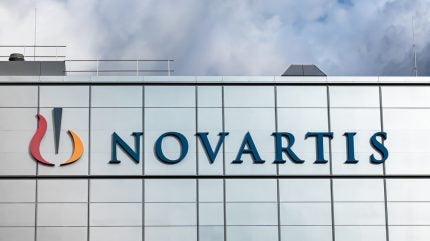
Novartis’s bid to block the launch of a biosimilar for its best-selling drug Entresto (sacubitril/valsartan) got off to a faltering start, as the drugmaker failed to convince a US court that MSN Pharmaceuticals’ (MSNPI) copycat infringed on a patent.
Richard Andrews, district judge for the District of Delaware, ruled the likelihood that Novartis would win the lawsuit was not high enough, meaning a preliminary injunction was not granted. While Andrews stated that stopping MSNPI’s generic launch was not justified, he did order a temporary 72-hour halt while Novartis goes to the US Court of Appeal to seek an injunction, as per a 12 August court document first released by Reuters.

Discover B2B Marketing That Performs
Combine business intelligence and editorial excellence to reach engaged professionals across 36 leading media platforms.
The hearing is part of a lawsuit initiated by Novartis to fend off MSNPI’s generic – which received US Food and Drug Administration (FDA) approval last month – to protect sales for its heart failure blockbuster.
Novartis’s reference drug was greenlit by the FDA just under a decade ago and has become the company’s top-selling product. It generated sales of $6bn in 2023, with Novartis predicting strong sales for 2024 based on the assumption that no generics would enter the market this year. An analysis by GlobalData’s Pharma Intelligence Center predicted that Entresto sales will peak in 2025, after which it will drop due to generic competition.
GlobalData is the parent company of Pharmaceutical Technology.
In an email to Pharmaceutical Technology, a Novartis spokesperson said: “[We] are considering all available options to vigorously defend our intellectual property rights.

US Tariffs are shifting - will you react or anticipate?
Don’t let policy changes catch you off guard. Stay proactive with real-time data and expert analysis.
By GlobalDataNovartis added that “any launch at this time would be at risk of later litigation developments”.
MSNPI did not immediately respond to a request for comment.
The most recent case centred around the use of the drug’s active compound called ‘TVS’, comprising sacubitril, valsartan, and sodium cations. TVS is present in an amorphous solid form in Entresto, which is protected by a patent until November 2026. Novartis sued MSNPI and others seeking to launch Entresto generics in 2022 for infringing on this patent.
Novartis argued that MSNPI’s asset uses solid forms of TVS, not the crystalline complex that MSNPI claims. MSNPI argued back, successfully, that spectra analysis of its candidate showed no evidence of amorphous TVS.
Andrews also rejected Novartis’s contention that it would experience ‘irreparable harm’ in the absence of an injunction. The drugmaker had stated that MSNPI’s launch could trigger at-risk launches by several other generic drugmakers, thereby “destroying Entresto’s market momentum and causing Novartis to suffer immediate irreparable harm in the form of lost sales, lost market share, loss of formulary position, and price erosion”.
During the proceedings, Novartis highlighted MSNPI’s financial stature, suggesting that it would not be able to cover monetary damages in the event of losing the lawsuit.
Judge Andrews rebuffed: “I am confident that MSNPI, a large generic drugmaker with prior experience in conducting at-risk launches would be sufficiently prepared to launch its generic sacubitril/valsartan products without being driven to financial ruin by possible litigation losses.”
The Delaware court also shunned a motion in July 2023 brought by Novartis, which centred around a patent protecting the combination of sacubitril with valsartan – it too will go to the US Court of Appeals.
Novartis has separately filed a lawsuit with a federal court in Washington, D.C., claiming the FDA’s approval of a generic version of Entresto is unlawful.
Novartis stated it is maintaining its financial guidance for 2024, as well as its mid-term guidance of +5% sales CAGR for 2023-2028.
Novartis is not the only pharma company fighting competition through court cases. Regeneron and Bayer have been locked in patent infringement lawsuits as the companies protect their $6bn revenue-generating biologic Eylea (aflibercept). Roche meanwhile has been fighting India-based Zydus Lifesciences from selling a copycat version of its breast cancer drug Perjeta (pertuzumab).




